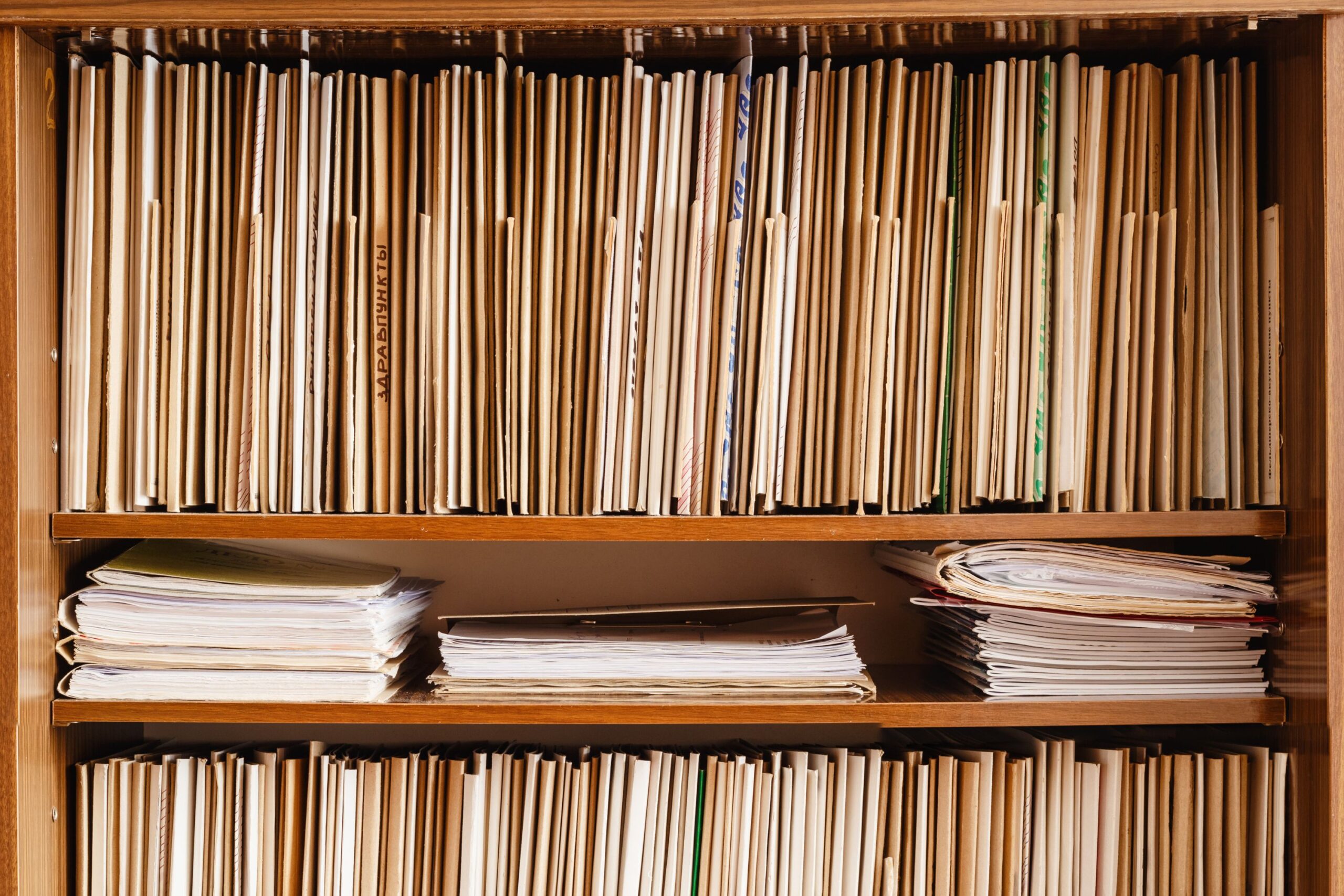Part and parcel of running a business is managing your company accounts.
Whether you do that yourself, or hire a professional accountant is immaterial. Just so long as you keep records of any invoices, receipts, expenses, bills, VAT and PAYE records etc that you’ve used to calculate your year-end accounts.
This doesn’t just make running your business easier because, provided your filing system is neat, you can access previous years paperwork, and assess how you’re doing year on year. But it’s also the law. And here’s what you need to know about the paperwork side of things:
How long to hang on to paperwork?
If you’re a sole trader then you must keep the relevant documentation for up to six years (or five years from your tax return’s last filing date). Unless, that is, you’ve bought machinery or another asset that you expect to last longer than that, so should hold on to the receipt etc.
The rules for limited companies are slightly different. They have to keep more documents, such as a list of assets, liabilities, secured loans and shareholder transactions – and all for up to six years. But certain documents, such as minutes of board meetings and VAT Mini One Stop Shop records, must be kept for up to a decade. The company register should be retained indefinitely.
Penalties for poor record keeping
Make a mess of your record keeping by throwing away receipts, losing invoices and not keeping a record of cash you take for personal use, etc and you’ll encounter the wrath of the tax man. That could lead, not only to a fine of £3,000 but also a ban on being a company director. There may also be legal consequences, a court fine and, in serious cases, imprisonment.
Word gets around and if you’ve been pulled up by HMRC for poor record keeping then that’s not exactly a good look for you or your business. It can lead to a loss of credibility and that could affect how your customers, suppliers and investors feel about the company.
If you don’t have the time or are worried you’ll make a mess of the accounts then it makes perfect sense to have a professional accountant do them for you.
Why you should keep good records
In addition to monitoring the financial progress of your company, keeping up-to-date and accurate business accounting records allow you to plan better for the future.
It also makes paying tax easier since you can lay your hands-on whatever needs included in that year’s tax return. A late return will result in financial penalties. Also, HMRC may ask to see past year’s records if they want to check you’re paying the correct amount of tax.
A very good reason to keep good accurate accounting records is that it allows you to do regular audits. This can help you ensure that there’s no theft or fraud occurring in the company. It can also help you identify areas of the business where you could make cut backs to increase profit.
Employee records or customer accounts are also easier to locate when your filing system is up to the mark. That means you can check which employees may need training, a promotion or wage rise etc. Or, you can follow up on customer feedback and complaints more readily. You can also use the records to look at your customers’ past purchases to help with marketing and promotions.
What business records to keep
You need information on what the company owns, how much money has been spent and received, and any debts (whether owed or accrued).
You’ll also need to keep records of stock that’s been bought and sold together with any purchases you’ve made for the business, and what you’ve sold.
Sales ledgers, invoices, till rolls can also be used as evidence of sales, while petty cash books, delivery notes, orders and receipts will show expenses. Bank statements can provide further info, so too can VAT records (if your company is registered). If you are VAT registered and exceed the £85,000 threshold then you must keep digital records (under the Making Tax Digital scheme). These too must be retained in compatible software for up to six years.
If you have employees in the company then you’ll need to keep records on what you pay them, their tax code and other details, any absences and, if relevant, documents for the Payroll Giving Scheme. Employee benefits should also be highlighted. This includes Statutory Sick Pay, Paternity Pay etc. Unlike the company’s financial details these records don’t have to be kept for up to six years; HMRC deems three years sufficient in this case.
How to keep your business records
These days there is plenty of accounting software and apps out there to record and work out your tax. But, of course, that’s only half the battle. You have to know what to record and to remember to do it. An accountant can keep you on your toes in respect of demanding certain paperwork and knowing what rebates you are entitled to.
Some people still prefer to use paper and certainly, invoices and receipts still arrive this way. You can, however, take images and load them onto your computer as a backup in case your filing isn’t all it should be or coffee gets spilled on them.
Where to keep those accounting documents
Most people who run limited companies keep their records and registers at the company’s registered address. Others choose to keep them at a Single Alternative Inspection Location (SAIL) address. This is fine, provided you alert Companies House.
Get in touch
Remain complaint with the law and credible in the eyes of your customers by ensuring your accounts are up-to-date and accurate. If you don’t have the time or the inclination to do them yourself, then you can ring the team here at Black and White accountants, tel: 0800 140 4644 or contact us via our website right here.



